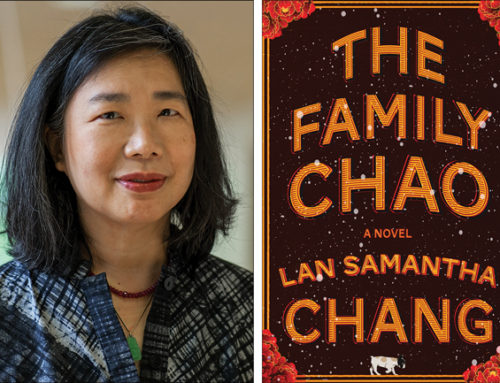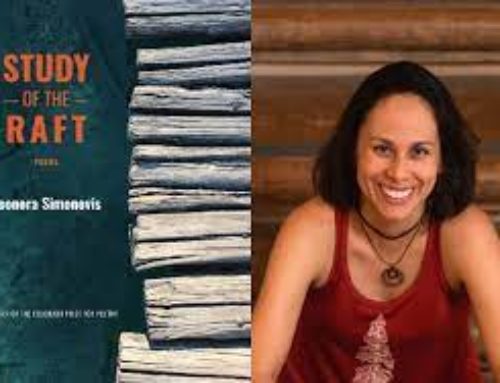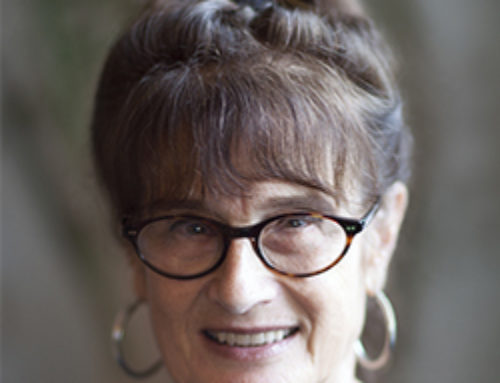 Peter Ho Davies was born to Welsh and Chinese parents and raised in Britain and the U.S., so it’s no surprise that his work concerns itself with the concept of identity. But his works are hardly circumscribed by the labels assigned to him personally. Rather, the liminal figures that people his short stories and novels occupy a range of in-between spaces — geographically and linguistically, within the shifting terrain of intimate relationships, and amid the chaos of political and social conflict.
Peter Ho Davies was born to Welsh and Chinese parents and raised in Britain and the U.S., so it’s no surprise that his work concerns itself with the concept of identity. But his works are hardly circumscribed by the labels assigned to him personally. Rather, the liminal figures that people his short stories and novels occupy a range of in-between spaces — geographically and linguistically, within the shifting terrain of intimate relationships, and amid the chaos of political and social conflict.
In The Ugliest House in the World alone, Davies depicts characters as various as the outlaws Butch Cassidy and the Kid on the lam in Patagonia, an English suicide hotline volunteer and a Welsh quarryman at the turn of the 20th century with equal nuance and distinction. Of the collection, published in 1997, the Independent wrote,
“The Welsh and the … Chinese and the English interest him circumstantially, but there is little sense of compulsion. His differentiated garments come out of the wash in similar condition: sensitively cleaned, and beautifully ironed.”
In the Guardian, which praised the “dazzling, ventriloquist quality to his writing,” Davies explained that his diverse background has abetted his ability to inhabit such a wide range of personas so completely.
“I think a lot of us feel torn between multiple identities: am I this, am I that? The truth is we’re often made up of these competing influences. But that’s not the shorthand that society works in. At times I struggle with that, but it’s a great gift as a writer. On the page, in a short-story collection, one story can be about this element of my identity, another about that part of my background.”
In his second collection, Equal Love (2000), the stories share the common theme of familial ties, while the settings, cultures and situations range as widely as ever. With compassion and elegance, Davies probes the frailties of intimacy, depicting moments of chaos, confrontation and contemplation and the truths that lie beyond. Rather than centering stories on singular characters, Davies’ emphasis is on the nature of the bonds between them. As New York Times reviewer Jacqueline Carey writes,
“… the stories are never sour. Nor are they mindlessly optimistic or sentimental. Davies’s attitude is more like awe — a profound respect for the power and vitality of human connections, however complicated. He captures these connections with economy and steely grace. ”
Stories from both collections have been widely anthologized, including selections for Prize Stories: The O. Henry Awards in 1998 and Best American Short Stories in 1995, 1996 and 2001. In 2003 Granta magazine named him among its twenty “Best of Young British Novelists”, a prophecy fulfilled by The Welsh Girl, published in 2007.
In the novel, Davies again explores displacement and belonging — to a place, a nation, a language. And with the Second World War as a backdrop, Davies adds another dimension, probing the gaps between known facts and written history, between official chronicle and human experience. Of his depiction of Rudolf Hess’ sojourn in Wales, Davies said,
“I’ve been attracted over time to these little bubbles of history where we just don’t know what went on in that space. And that’s the space, where the historical record has a blank surface to it, into which we can interpose fiction very easily. That’s a vacuum that fiction goes into. ”
Each of the three central characters contain within them warring identities and urges: Esther, among the few inhabitants of her Welsh village who can speak English to the troops stationed there; Karsten, a German prisoner of war experiencing a crisis of conscience; and Rotheram, a German half-Jew working for the Allies. Through them, Davies explores the ambiguities and contradictions that plague even the grandest of historical events. As Jenniger Egan writes in the New York Times, “Davies’s achievement is significant: like good social history, The Welsh Girl invites us to question history’s master narratives, which have a way of wiping out the contradictions and complications of real life.”
The Welsh Girl was long-listed for the Man Booker Prize in 2007. Among his other honors, Davies was awarded the PEN/Malamud award in 2008, and he has received fellowships from the Guggenheim Foundation, the National Endowment for the Arts and the Fine Arts Work Center in Provincetown.
Davies taught at the University of Oregon and Emory University and is now on the faculty of the MFA Program in Creative Writing at the University of Michigan in Ann Arbor. During the conference week, he’ll give a reading Sunday evening, July 28, at 7:30 p.m. and his lecture on the art and craft of fiction is slated for Wednesday, July 31, at 1:30 p.m., both at the the Napa Valley College Upper Valley Campus. See the Lectures & Readings page for full details.
Further resources:
- Web Del Sol interview
- Official site
- Fiction:







